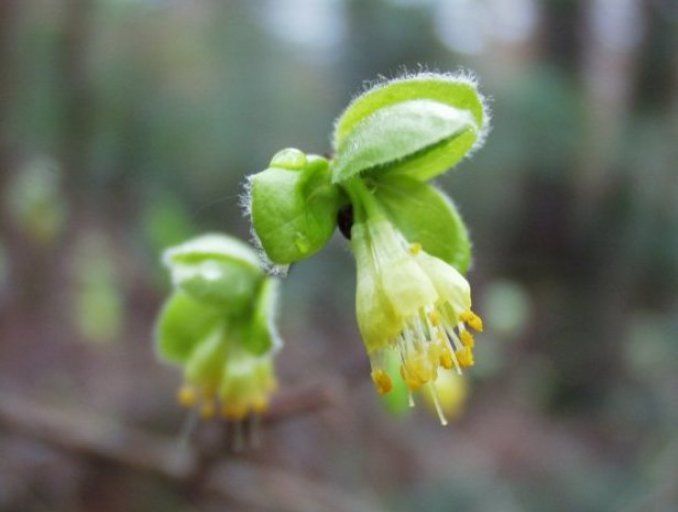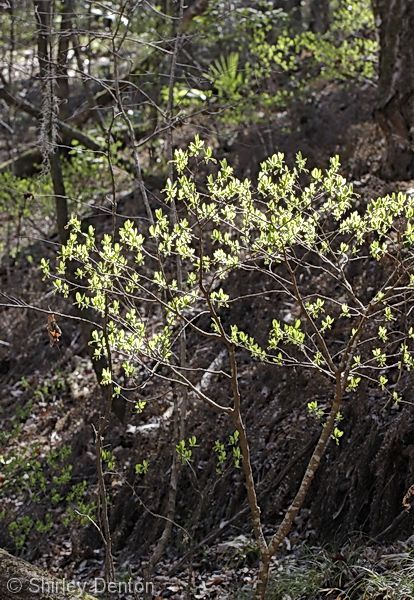FNPS Plant Database
Dirca palustris
Nomenclature
Common Name:
Synonym(s):
Genus species:
Family:
Thymelaceae
Plant Specifics
Form:
Size:
Life Span:
Long-lived perennial
Flower Color:
Fruit Color:
Phenology:
Noted For:
Landscaping
Recommended Uses:
Considerations:
Availability:
Propagation:
Light:
Moisture Tolerance:
Always Flooded---------------------------------Extremely Dry
□□□□□□□□□□□□□□□■■■■■■■■■■■■■■■□□□□□□□□□□□□
Usually moist, occasional inundation -to- Not wet but not extremely dry
Salt Water Flooding Tolerance:
Unknown
Salt Spray/Salty Soil Tolerance:
Low/no tolerance of salty wind or direct salt spray
Soil or Other Substrate:
Sand
Soil pH:
Suitable to Grow In:

USDA zones are based on the average annual extreme minimum winter temperature.
Don't know your zone? Click here to search by zip code.
Vouchered In:
Ecology
Wildlife:
Insects visit the flowers, but likely the plant does not rely upon them. Visits apparently opportunistic. (Williams, 2004).
Native Habitats:
Comments:
Ethnobotany:
General Comments:
Citations:
Williams, C. (2004). Mating system and pollination biology of the spring-flowering shrub, Dirca palustris. Plant Species Biology 19:101–106.
Wunderlin, R. P, B. F. Hansen, A. R. Franck, and F. B. Essig. (1999+). Atlas of Florida Plants. ( https://florida.plantatlas.usf.edu/ ). [S. M. Landry and K. N. Campbell (application development), USF Water Institute.] Institute for Systematic Botany, University of South Florida, Tampa, FL.










